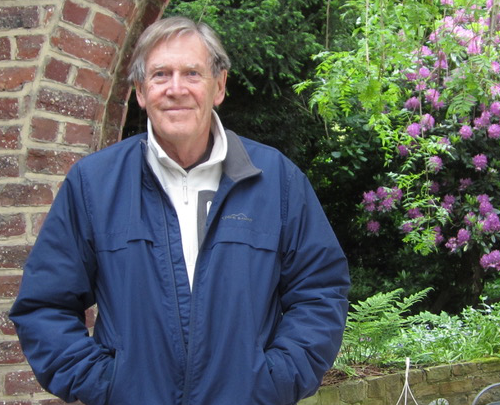Bill Clark from the University of California Los Angeles discusses his research applying the endowment effect of Prospect Theory to decisions of why people move from, or stay in, their homes. His open-access article, “Prospect theory and the decision to move or stay,” co-authored with William Lisowski, was published in the September 5, 2017 edition of the Proceedings of the National Academy of Sciences.
Websites
- Prospect Theory: An Analysis of Decision under Risk by Daniel Kahneman and Amos Tversky
- Papers by Peter Morrison at RAND
- The Undoing Project: A friendship that changed our minds by Michael Lewis
- The Household, Income and Labour Dynamics in Australia (HILDA) Survey
- Panel Study of Income Dynamics (PSID)
Bonus Clips
Patrons of Parsing Science gain exclusive access to bonus clips from all our episodes and can also download mp3s of every individual episode.
Support us for as little as $1 per month at Patreon. Cancel anytime.
Patrons can access bonus content here.

We’re not a registered tax-exempt organization, so unfortunately gifts aren’t tax deductible.
Hosts / Producers
Ryan Watkins & Doug Leigh
How to Cite
Watkins, R., Leigh, D., & Clark, B.. (2018, January 23). Parsing Science – Decisions to Move. figshare. https://doi.org/10.6084/m9.figshare.5915404.v2
Music
What’s The Angle? by Shane Ivers



At the end of our conversation, Ryan and I asked Bill what exciting changes he anticipates are coming to the discipline of geography.@rwatkins says:
Bill’s research extends beyond the kinds of questions that geographers and demographers more typically explore by examining why people make decisions of when and where to move. In answering this question, he considered the length of time that people decide to stay put as a surrogate of the Endowment Effect, as he explains next.@rwatkins says:
In developing Prospect Theory, Tversky and Kahneman researched how people make decisions with embedded risks. Here, Bill relates how his study sought to extend their work to housing decisions.@rwatkins says:
To examine risk taking within the context of mobility and migration, Bill required a dataset that included measures of people’s propensity for risk, as well as of their moving behaviors. He found both in Australia.@rwatkins says:
In the early 1970s, Peter Morrison of the RAND Corporation, a nonprofit think tank, authored a paper that would later make a substantial influence on Bill’s research. Here, he explains how Morrison’s work suddenly became very salient again when – 40 years later – its relevance to Kahneman’s research on the duration that people choose to "stay put" in their homes became evident.@rwatkins says:
Disciplines can often benefit from research done in other domains. And just as others learn from geographers, geographers learn from others' research as well. Here, Bill summarizes his novel approach to applying Prospect Theory – which emerged in psychology and decisions sciences, and later found mass appeal as "behavioral economics" – as a theoretical framework in his study of geography.@rwatkins says:
Beginning in the 1970s, Daniel Kahneman and Amos Tversky developed Prospect Theory as a challenge to the common belief that - on average - people make decisions rationally. Instead, they suggested that we tend to make decisions based on our prospects of avoiding the risk of unwanted losses against the probability of achieving desirable gains. Since then, their work has fueled advancements in most every field of social science, as well as many natural science disciplines. Here, Bill describes how he came to employ Kahneman and Tversky's formulation of the Endowment Effect – the idea that people ascribe more value to things merely because they already own them – within his study.@rwatkins says:
Important life decisions – such as when and where to move – are commonly complex, with multiple considerations involved. Given the many years he’d studied these decisions, we were interested in hearing from Bill how he himself has decided where to move over time.@rwatkins says:
Bill’s research investigates questions of why people move, and recognizes that all moves are not equal. To clarify the distinctiveness of moves, Bill differentiates short distance moves – or “residential mobility” - from longer distance ones, referred to as migration.@rwatkins says:
Trained as a geographer, the notion of “place” has always been central to Bill’s research. Doug and I wondered what interested him in pursuing geography as a profession to begin with.